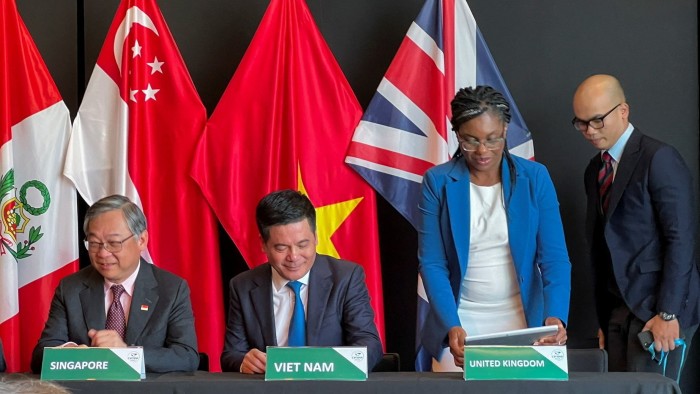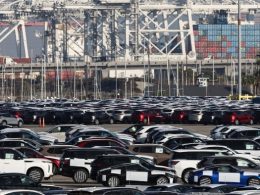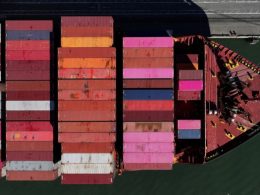Unlock the Editor’s Digest for free
Roula Khalaf, Editor of the FT, selects her favourite stories in this weekly newsletter.
Britain will become the first European nation to join an Indo-Pacific trade bloc on Sunday, although the estimated £2bn “long-run” benefits to the UK economy will be dwarfed by Brexit-related loss of trade with the EU.
Kemi Badenoch, former Conservative trade minister and now Tory leader, said membership of the Pacific bloc was a crucial post-Brexit trade deal, attaching Britain to the fastest-growing region in the world.
Jonathan Reynolds, the current trade secretary, has also endorsed the deal, which he argues will bring benefits to UK exporters in fields such as food and drink, automotive and financial services.
But while trade experts say membership of the Comprehensive and Progressive Agreement for Trans-Pacific Partnership will benefit Britain, they caution that the gains will be relatively limited.
Britain will become the 12th member of the trade club, which comprises Australia, Brunei, Canada, Chile, Japan, Malaysia, Mexico, New Zealand, Peru, Singapore and Vietnam.
Badenoch signed the deal in 2023, with Downing Street saying at the time that 99 per cent of UK goods exports to CPTPP countries would be eligible for zero tariffs, including cheese, cars, chocolate, machinery, gin and whisky.
But the government estimated in 2021 that the deal would boost UK GDP by just 0.08 per cent in the long term, compared with the 4 per cent hit to GDP of Brexit calculated by the Office for Budget Responsibility.
Conservative officials claim that one advantage of CPTPP membership is it “makes a return to the EU customs union impossible, cementing the advantages of Brexit”.
Customs union members have to subscribe to EU trade deals and cannot strike their own accords. Prime Minister Keir Starmer has ruled out a return to the customs union in any event.
Douglas Alexander, trade minister, has called the CPTPP “a hub for dynamic, forward-thinking economies committed to promoting free trade around the globe”.
He is also seeking trade deals with India and Gulf states, but wants lower trade barriers with the EU. “For all the talk about the death of distance, geography still matters with trade,” he told the Financial Times in August.
David Henig, a trade expert, said the CPTPP deal would simplify supply chains in the bloc, notably in the car sector, and help with exports of products such as whisky.
“It’s not harmful and it might provide a few opportunities,” he said. “It’s a ‘nice to have’.” Henig noted that Britain already had some kind of trade agreement with all CPTPP members, apart from Malaysia and Brunei.
The government said UK services firms could also find it easier to operate in the Pacific, with “firms allowed to manage funds across the world from the UK and provide services to CPTPP markets on a level playing field with domestic firms in key sectors”.
Badenoch said: “The Conservatives delivered CPTPP — a trade deal that brings enormous benefits to everyone from British farmers to fintech and small businesses to the largest manufacturers.
“However, joining a trade bloc is only the start. Labour spent the last parliament mocking our CPTPP negotiations, and they now have a responsibility to ensure that UK companies can make the most of this landmark deal.”
Source link









